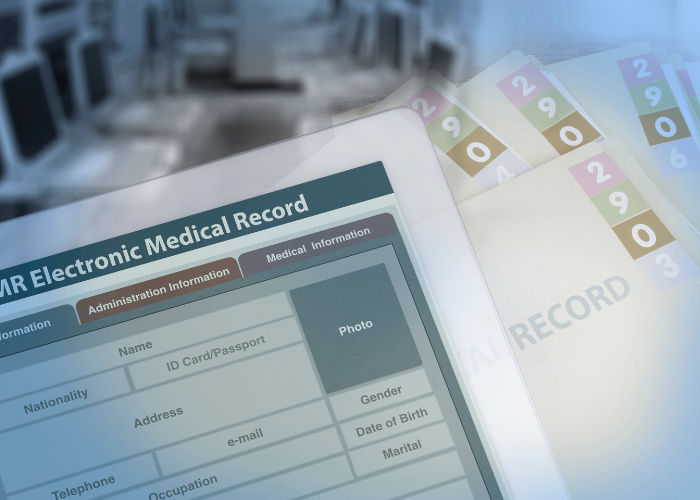Data collaboration with CCTS biomedical informatics examines connection between racial disparities and lung cancer
Story

Sage Kim, PhD is an associate professor in the department of health policy and administration in UIC’s School of Public Health. Dr. Kim’s research focuses on the effects of incarceration and health disparities on population health. In particular, she has used clinical data to examine the impact of social determinants of health- like neighborhood demographics and crime statistics- on cancer risk.
In 2019, Dr. Kim approached the CCTS biomedical informatics core for assistance in accessing data from UI Health’s electronic medical record. She wanted to examine the potential impact of racial disparities on the rate of lung cancer by decoding neighborhood-level factors, focusing on some of Chicago’s predominantly Black and Hispanic zip codes. In addition to factors like poverty, segregation, crime and environmental hazards, the study required patient-level data points like body mass index, smoking status and insurance status.
The biomedical informatics team met with Dr. Kim to confirm the electronic medical record (EMR) data required as well as the associated CPT and ICD diagnosis codes. CCTS research specialist, Rohith Vanam, spoke about navigating the inconsistencies between Cerner and Epic data in order to retrieve the requested data.
“Extracting smoking related data from the Clinical Research Data Warehouse (CRDW) is challenging, particularly with legacy Cerner data structure,” said Vanam.
Vanam was able to identify and analyze the Cerner data by performing a string-based search with smoking-related terms. He created a data extraction query that returned study participants’ smoking-relevant variables, their associated code variables, and code descriptions. After extracting, securely packaging and delivering the CRDW data to Dr. Kim’s team, the informaticians’ work was done… for the moment.
Partners in research
While the biomedical informatics team moved on to other requests, Dr. Kim was hard at work analyzing and mapping the data received. The results were remarkable, and she wanted the team to share in her excitement.
“CCTS people helped this project, but it’s behind the scenes. I’m not even sure they actually see the final product. I thought, they have no idea how valuable their work is. I just wanted to share what I found from the data that they gave me,” said Kim.
The Biomedical informatics team was pleased to hear back from an investigator they supported. David Randolph, another biomedical informatics research specialist, spoke about the benefits of working collaboratively with study teams on their data requests as opposed to the frequent transactional nature of these requests.
“It is true that in many cases data requests are straightforward. My job is to transform a written specification into database queries and upload the results to a secure location. If the researcher is happy with the data, that is that. But sometimes it is not a straight line to satisfy the research needs,” said Randolph. “In Dr. Kim’s case, there was a lot of back-and-forth, as she was looking for some information that wasn’t lying in plain sight in the EHR. I remember connecting her to the Tumor Registry at the UIC Cancer Center for more details we did not have. I remember visiting her in her lab to review the data to make sure she had everything and understood how the data was structured.”
This initial conversation sparked additional ideas around how the data could be improved or expanded to reinforce the initial findings.
“In recent days, she even pressed us to find more granular information about patient smoking habits (type, amount, ages started and stopped), details I had not realized existed in our data warehouse. In this regard, Rohith is the real hero of this story,” said Randolph.
“Going forward, if Joanna and Dave are actually aware of what was produced from their data, I think that their communication and collaboration with the next researcher will be so much better because they know how data is used. And with my work particularly, seeing how clinical data is turned into Chicago community data will be more interesting,” said Kim.
In it for the long-haul

Translational science is an iterative process. By intentionally partnering with our research teams as their studies progress along the translational spectrum, CCTS is better able to meet our goal of getting health interventions to those who need them most, ultimately improving the overall health of our communities.
Biomedical informatics project manager, Joanna Tess, said that the core is always striving to improve operational processes, availability and accuracy of data and the impact they have on health research. She said the most valuable projects are the ones where they collaborate iteratively with the study team as they not only learn the most from these studies, but it is also fulfilling to see the results.
Tess commented, “Ultimately though, data is not inherently right or wrong – there are assumptions made in generating, transforming, and using the data. We will have the most success in leveraging health data for research when we work together.”
“I am in the world of data science, but also trying to connect this powerful data work back to health outcomes and equity. [Biomedical informatics] work is so essential in a way, getting clinical data and making it available to researchers like me to like blow up to population level issues. This is something I can’t do myself. I need biologists, pathologists, data people, bioinformatics people all together to get these sort of results,” said Kim.
Learn more about the ways CCTS can support your study team for the long haul.